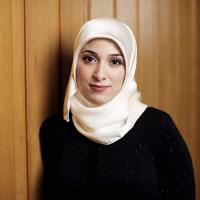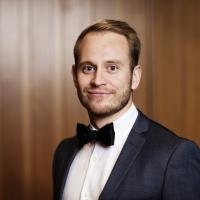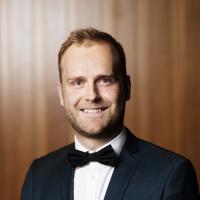The Lundbeck Foundation honours brilliant new research talents

They’re not yet 30 but have already shown outstanding talent, which is why these five brilliant scientists were awarded a Lundbeck Foundation Talent Prize on Monday evening.
“There are many promising young scientists at the Danish universities but we don’t see exceptional talents every day, so it’s always a particular pleasure to award the Lundbeck Foundation Talent Prizes to some of the very best young scientists in acknowledgement of their exceptional work,” says Anne-Marie Engel, Director of Research at the Lundbeck Foundation.
The prize is accompanied by a monetary award of DKK 100,000.
The five recipients of the Talent Prize are:
Tore Bjerregaard Stage, PhD, Assistant Professor, pharmacist, University of Southern Denmark
Tore Bjerregaard Stage researches into personalised medicine. Among other things, he studies the way in which differences in patients have an impact on the interaction between various drugs and, thus, how they affect the individual. Although only 29, due to his great talent, dedication and excellent interpersonal skills, Tore has already published 24 original articles in reputable international journals with peer review, including the Journal of the American Medical Association, which is one of the five most important medical journals in the world. It is an extraordinary feat for a 27-year-old Danish scientist to be published in this journal.
Tore has also received the prestigious Jason Morrow Trainee Award.
Andreas Laustsen, MSc in Chemical Engineering, postdoc, Technical University of Denmark
Andreas Laustsen is not merely a skilful scientist, he is also a talented businessman and communicator. While studying for his engineering degree – graduating with the highest possible Danish grade-point average (12.0) – he helped start up biotech comet Biosynthia, a company that has won countless innovation prizes. He then co-founded VenomAb, a philanthropic project focusing on designing novel snakebite antivenoms. The project gained him first place in the Venture Cup, and he is the brains behind a total of five biotech companies. Andreas completed his PhD in two short years, with six publications, and for this reason was selected to participate in the 2017 PhD Cup. Andreas is also a popular mentor and speaker.
Mads Emil Jørgensen, MD, PhD, Gentofte Hospital
Mads Emil Jørgensen began his research at an early stage, while still studying for his Bachelors degree, at the research centre at Gentofte Hospital’s Department of Cardiac Medicine, and he has already authored 15 scientific articles that have been published in well-reputed, international journals. In 2015, Mads was admitted to the Lundbeck Foundation’s Clinical Research Fellowship Programme in California, which involved ten months’ research at Stanford University. Since then, he has helped develop this programme for the benefit of the medical students following him. Among other things, Mads’ research focuses on identifying the best and most effective way to examine patients with chest pain. Mads will soon submit his PhD and is expected to defend it in spring 2018.
Fatima Al-Zahraa Al Atraktchi, MSc in Physics and Nanotechnology, PhD student, Technical University of Denmark
Fatima Al-Zahraa Al Atraktchi is a qualified nano-physicist and autodidact molecular biologist, with a special interest in biomedicine. Among other things, she has developed a revolutionary method for detecting bacterial infections and has also proven that, in the vast majority of cases, patients who are clinically described as being free from bacteria after treatment are actually still infected. Fatima is described as outstandingly intelligent, ambitious, focused, disciplined and energetic. She had already published eight articles in internationally reputable journals before she submitted her PhD, and she had a number of finished manuscripts ready for submission.
Christian Laut Ebbesen, PhD, postdoc, biophysicist, University of Copenhagen
Christian Laut Ebbesen is a very promising, young Danish brain researcher. He began his studies in biophysics at the Niels Bohr Institute but quickly became involved in biomedical sciences research. During the course of his PhD in Berlin, Christian studied the way in which neurons in the cerebral cortex code complex stimuli and control behaviour. His latest project involves investigation of the activity in the brain’s motor cortex – more precisely, the significance of the movement of whiskers in the social interactions of rats. Christian has an extensive international network and has presented his work at numerous reputable conferences and high-profile scientific meetings.







